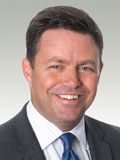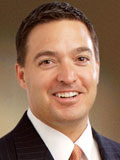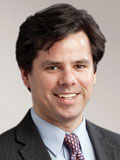
Partner,
Winston & Strawn

Managing Director/Founding Member,
Huron Business Advisory

Associate,
Huron Business Advisory
Challenging Front Nine: Course History & Situation Analysis
The local golf business was great when comedian Bill Murray and younger brother Joel Murray were flipping hamburgers and serving hot dogs while working at the Evanston-Wilmette Community Golf Course (EWCGC) in the 1970s. By 2012, however, the course had fallen on hard times. With an operating budget in the range of $450,000 to $500,000, revenues lagged the operational requirements to maintain a functional golf course, resulting in significant deficits throughout 2011 and 2012, and had the course on the brink of collapse. Two former board members filed a lawsuit, making allegations of misuse of funds and mismanagement of the course and the association. While not everyone agreed with those claims, nobody could deny that the course was in serious trouble. Several greens were dying and many of the lawnmowers and other maintenance equipment were unusable. The lawsuit was settled in late 2012 when Cook County Judge Richard Billik, Jr., approved the appointment of a new board of concerned residents and business leaders.
Working closely with the rest of the newly appointed board, including board members Todd Ricketts (Chicago Cubs ownership group), John Powers (Union Street Tin Co.), Kevin Kane (KPMG), Board Treasurer Joe Rickard (Incapital, managing director/CTO), as well as fellow board and Turnaround Management Association Chicago/Midwest Chapter members Tim Dable (attorney, Winston & Strawn), and consultants Dan Wikel and Chris Maier (Turnaround advisors, Huron Business Advisory), turnaround efforts were implemented with the following:
- Preparation of a 13-week cash-flow model and immediate implementation to gain an understanding of liquidity requirements. The model was used throughout 2013 to monitor the course’s cash position and served a foundation for the initial 2014 operating budget.
- Overhaul of the bylaws and board of directors.
- Promoting fundraisers, hole sponsorships, league and youth-based events to generate revenue.
- Embracing alternative sources of revenue by providing certain areas of the golf course for game day tailgating and parking during Northwestern University football games.
- Rebranding the golf course and improving marketing efforts in the community, specifically aimed at getting community youths on the golf course regularly, if not daily, in the summer.
- Hiring and/or training key course personnel, including a course supervisor and teaching professional.
- Creative lease financing and cultivating alternative uses of the golf course for the investment for lawn and course equipment.
- Enhancing the course and golf experience, mostly through volunteers and community involvement.
Five-Stage Turnaround Model
The group utilized its turnaround and restructuring experience across a wide array of industries, focusing on the most critical Canal Shores areas, which determined where the most time and analysis needed to be dedicated. We embraced the frequently used “five-stage turnaround model” as a guide in modeling the turnaround strategy to be implemented, including analysis of financial position, operations and corresponding progress at Canal Shores throughout 2013 vis-à-vis each of the five turnaround stages:
- Changing Management: A newly elected board of directors, a reconstituted set of bylaws for Canal Shores, a commitment to course maintenance, fundraising and general course operational improvements. The board changes were critical, as the course was left in a state of near disrepair by the end of 2012, struggling with past due critical vendor invoices (notably, more than $25,000 in water bills) and allegations of fund misuse requiring better controls and procedures.
- Analyzing the Situation: The group was able to develop a preliminary action plan where critical vendors were identified, significant amounts of outstanding accounts payable were re-verified and reconciled to original contracts, and 13-week cash-flow model was developed to assist in managing cash sources and uses with focus on short and medium-term liquidity requirements. A fully used line of credit with a local bank was also addressed, by establishing suitable and agreeable terms, based on the current situation.
- Implementing an Emergency Action Plan: In danger of the daily concern of being cut off by several key vendors (including municipal water plants and other critical course maintenance vendors) due to staggering unpaid and aged account balances, the group implemented a 13-week cash-flow model to create the plan of action taken by the course to avoid vendor shutdowns and resolve large unpaid account balances, including opening the lines of communications and payment plans. Moreover, the cash-flow improvement resulting from the aforementioned fund raising measures, including the Northwestern University parking and tailgate series and annual hole sponsorships, were paramount.
- Restructuring the Business: A great number of creative revenue-generating measures were implemented by the new board of directors in 2013, resulting in significantly higher cash inflows than initially anticipated at the beginning of 2013. These initiatives include hole sponsorships sold for each of the course’s 18 holes for the 2013 season and the course contracting with Northwestern to use certain holes for tailgating and parking at Northwestern University home football games with the majority of the payment upfront. The course has continued to sell hole sponsorships for the 2014 calendar year and implemented a successful annual pass program during the 2013 holiday season.
- Return to Normal: By the close of 2013, Canal Shores has settled all of its outstanding accounts payable, including the past due water bills, as well as entering year two of its five-year payment plan with its lender. Going forward into 2014, the board will continue to look for ways to improve the course, operations and other means to improve cash flow.
Getting Back on the Fairway
Assisting the board’s treasurer and finance committee in developing and implementing a 13-week cash-flow model for the course became a top priority in early 2013. The model was a critical step in improving liquidity management and revenue enhancement, and assisted in establishing controls and procedures surrounding cash management, while developing more reliable financial projections and providing guidance in other turnaround matters.
The 13-week cash-flow model, a staple in the turnaround industry, has been a valuable tool in monitoring the club’s cash-flow performance and short-term liquidity requirements. Working through the financial distress faced by EWCGC in early 2013, we focused initially on short-term liquidity requirements and tailored a preliminary 13-week cash-flow model to assist in identifying the course’s primary sources and uses of cash. A 13-week timeframe will generally provide the turnaround consultant with sufficient insight into short- and medium-term trends impacting cash flow without creating a model flawed by unreliable assumptions due to attempts to predict too far into the future.
Beginning in early 2013, the board’s treasurer and finance team monitored cash flow and float on a weekly basis and this 13-week cash-flow model was shared at each monthly meeting. The course established a stable and reliable accounting system, and completed prior year tax returns, as reestablishing the course’s tax-exempt status were initial, critical steps in the right direction. The cash culture instilled by implementing a 13-week cash-flow model assisted in providing the treasurer and those involved in operations at the course a clearer understanding of cash accounting versus accounting accruals. The timing of cash inflows and outflows and the priority given to critical vendors with outstanding balances was a key in keeping the operations running throughout the golf season.
Finishing Under Par
Although there is still much work to be done, we are thrilled with the initial success of the Canal Shores Golf Club as we enter the 2014 golf season. Using the historical data from the closely monitored activity in 2013, the 13-week cash-flow model is now a driver of an annual budget that even reflects some modest revenue growth in 2014 due to the improved course.
The authors would like to send a special thanks to the board of directors and employees of Canal Shores, the communities of Evanston and Wilmette, Northwestern University, and all those who contributed to the successful turnaround of Canal Shores in 2013. We would especially like to thank the newly elected and mainstay Canal Shores board members for the opportunity to assist in the turnaround efforts.
Most importantly, while there will not be any monetary compensation for the efforts in this pro-bono project, on our deathbeds, those involved will receive total consciousness …“So we got that goin’ for us, which is nice.”
Tim Dable is a corporate partner at Winston & Strawn’s Chicago office. Tim has represented clients in workouts and restructurings, both in and out of bankruptcy. He can be reached at [email protected] or (312) 558-6369.
Dan Wikel, managing director/founding member at Huron Business Advisory, has more than 20 years of business and industry experience. He can be reached at [email protected] or (312) 622-5938.
Chris Maier, associate at Huron Business Advisory, has more than 5 years of corporate restructuring and turnaround experience. Chris can be reached at [email protected] or (312) 880-3537.
